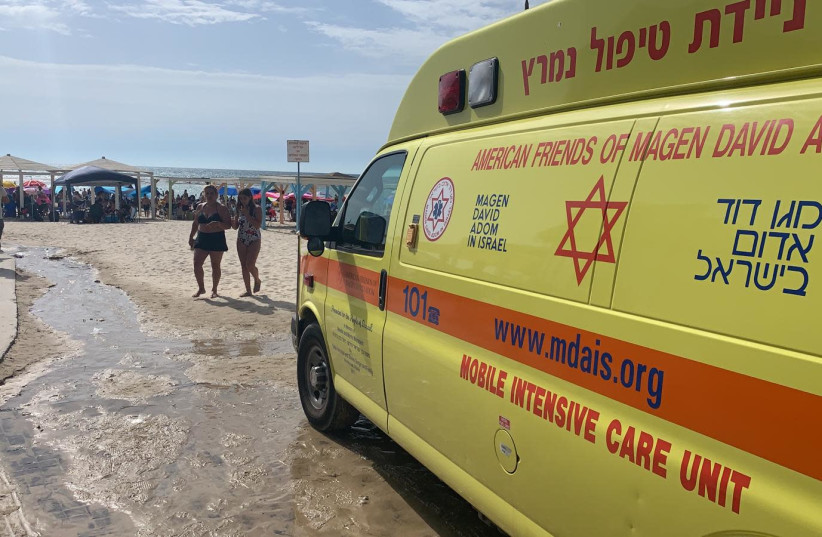For an emergency medical service, ensuring that the right resources are deployed to respond to every call in the fastest possible way represents the biggest challenge.
In order to face this challenge, Magen David Adom — Israel’s national EMS — has been using artificial intelligence to dispatch its ambulances and first responders and is employing AI-based predictive learning to proactively place paramedics near where the next emergency will most likely occur, Aryeh Myers, MDA Senior Paramedic and Liaison with the International Relations Department, explained.
“Based on these tools, we know for example that on the first day of the week, more people are likely to experience cardiac problems as they reach their work in the morning, and for this reason we need more resources near business centers,” Myers said while sitting on a panel on medical innovation at The Jerusalem Post Annual Conference in New York on Monday.
“In addition, we have an idea about when and where we can expect serious car accidents, and this allows us to send our ambulances on those routes,” he added. “Obviously, this means saving more lives.”
Myers said that while most of MDA technology is developed in-house, the organization shares it with other emergency services in Israel, such as the fire department and the police.

MDA uses technology to automatically transcribe calls
Another technological tool that MDA is employing is the automated transcription of the calls it receives.
“This allows us to catch mistakes that can potentially be made, helping us prevent human error,” Myers.
“Transcribing calls also helps when the call quality isn't great,” he added. “Most of the calls that we used to receive 20 years ago were from a landline and the connection was less likely to fail, but now the majority comes from a cell phone and obviously there are technological problems with that. A transcription service helps collect information more accurately and gives us the location quicker.”
Sitting on the panel were also Brachie Sprung, Chief Communications Officer and Head of Investor Relations at aMoon Fund and Amir Elichai, Founder and CEO at Carbyne.
According to Elichai, whose company has developed an emergency collaboration platform, in the next few years, interconnected devices will start to play a crucial role in reaching emergency services.
“I think that the smartwatches or the smart home systems more and more of us have represented the next generation of emergency communications,” he said. “I truly believe that in the near future, we will see a scenario where someone is at home sleeping and their device automatically calls 911 to alert that there is a fire in the kitchen.”
For Sprung, the world is already witnessing an era where technology is revolutionizing biology.
“Medicine is starting to be in a place where we can prevent conditions before they develop,” she said.
“Innovation is moving from the lab to the patient in a way that we had never seen before,” she added. “It is faster, more predictive, more precise, and more personalized. The next ten years are going to be huge and Israel is going to play a very major role.”